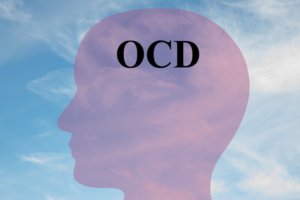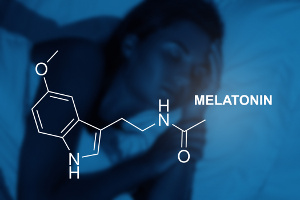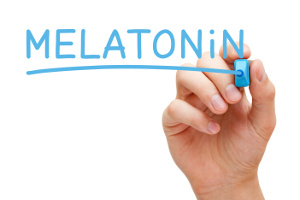afterLoad (456.22KB) (467μs)
afterInitialise (1.27MB) (49.31ms)
afterRoute (870.38KB) (25.11ms)
beforeRenderComponent com_tags (20.52KB) (1.36ms)
afterRenderComponent com_tags (1.8MB) (153ms)
afterDispatch (27.09KB) (4.28ms)
beforeRenderRawModule mod_articles_category (READ MORE...) (372.12KB) (32.25ms)
Before Access::preloadComponents (all components) (56.7KB) (490μs)
After Access::preloadComponents (all components) (103.05KB) (10.99ms)
Before Access::getAssetRules (id:8 name:com_content) (840B) (20μs)
After Access::getAssetRules (id:8 name:com_content) (7.05KB) (43μs)
afterRenderRawModule mod_articles_category (READ MORE...) (6.33KB) (245ms)
beforeRenderRawModule mod_tags_popular (Search) (4.81KB) (30μs)
afterRenderRawModule mod_tags_popular (Search) (1.77KB) (136ms)
beforeRenderRawModule mod_custom (Remember to download Heart Healthy Seniors) (816B) (29μs)
afterRenderRawModule mod_custom (Remember to download Heart Healthy Seniors) (4.86KB) (3.26ms)
beforeRenderRawModule mod_custom (Get additionel and more detailed knowledge ) (752B) (42μs)
afterRenderRawModule mod_custom (Get additionel and more detailed knowledge ) (1.67KB) (62μs)
beforeRenderRawModule mod_custom (BOOST YOUR IMMUNE DEFENSE) (608B) (12μs)
afterRenderRawModule mod_custom (BOOST YOUR IMMUNE DEFENSE) (928B) (27μs)
beforeRenderRawModule mod_custom (Are you taking supplements) (736B) (9μs)
afterRenderRawModule mod_custom (Are you taking supplements) (1.03KB) (21μs)
beforeRenderRawModule mod_custom (Antiaging) (720B) (9μs)
afterRenderRawModule mod_custom (Antiaging) (1.02KB) (18μs)
beforeRenderRawModule mod_custom (Exercise) (720B) (9μs)
afterRenderRawModule mod_custom (Exercise) (1.02KB) (20μs)
beforeRenderRawModule mod_custom (Check this before you buy a Q10 product) (752B) (8μs)
afterRenderRawModule mod_custom (Check this before you buy a Q10 product) (944B) (19μs)
beforeRenderRawModule mod_custom (Chronic fatigue tied Alan to his bed but Q10 capsules saved him:) (245.53KB) (16.06ms)
afterRenderRawModule mod_custom (Chronic fatigue tied Alan to his bed but Q10 capsules saved him:) (960B) (47μs)
beforeRenderModule mod_custom (Chronic fatigue tied Alan to his bed but Q10 capsules saved him:) (768B) (5μs)
afterRenderModule mod_custom (Chronic fatigue tied Alan to his bed but Q10 capsules saved him:) (1.3KB) (55μs)
beforeRenderRawModule mod_custom (Cholesterol-lowering without side effects:) (368B) (13μs)
afterRenderRawModule mod_custom (Cholesterol-lowering without side effects:) (2.19KB) (24μs)
beforeRenderModule mod_custom (Cholesterol-lowering without side effects:) (752B) (2μs)
afterRenderModule mod_custom (Cholesterol-lowering without side effects:) (1.28KB) (29μs)
beforeRenderModule mod_articles_category (READ MORE...) (21.32KB) (331μs)
afterRenderModule mod_articles_category (READ MORE...) (1.25KB) (36μs)
beforeRenderModule mod_tags_popular (Search) (5.17KB) (13μs)
afterRenderModule mod_tags_popular (Search) (1.27KB) (24μs)
beforeRenderModule mod_custom (Remember to download Heart Healthy Seniors) (1.17KB) (10μs)
afterRenderModule mod_custom (Remember to download Heart Healthy Seniors) (1.3KB) (22μs)
beforeRenderModule mod_custom (Get additionel and more detailed knowledge ) (368B) (9μs)
afterRenderModule mod_custom (Get additionel and more detailed knowledge ) (1.3KB) (20μs)
beforeRenderModule mod_custom (BOOST YOUR IMMUNE DEFENSE) (224B) (4.09ms)
afterRenderModule mod_custom (BOOST YOUR IMMUNE DEFENSE) (1.28KB) (75μs)
beforeRenderModule mod_custom (Are you taking supplements) (352B) (30μs)
afterRenderModule mod_custom (Are you taking supplements) (1.28KB) (34μs)
beforeRenderModule mod_custom (Antiaging) (336B) (17μs)
afterRenderModule mod_custom (Antiaging) (1.27KB) (24μs)
beforeRenderModule mod_custom (Exercise) (336B) (10μs)
afterRenderModule mod_custom (Exercise) (1.25KB) (20μs)
beforeRenderModule mod_custom (Check this before you buy a Q10 product) (352B) (10μs)
afterRenderModule mod_custom (Check this before you buy a Q10 product) (1.28KB) (21μs)
beforeRenderRawModule mod_menu (Main menu-US) (20.94KB) (2.65ms)
afterRenderRawModule mod_menu (Main menu-US) (152.66KB) (16.33ms)
beforeRenderModule mod_menu (Main menu-US) (720B) (5μs)
afterRenderModule mod_menu (Main menu-US) (4.36KB) (63μs)
beforeRenderRawModule mod_languages (Sprogskift) (3.44KB) (21μs)
afterRenderRawModule mod_languages (Sprogskift) (32.3KB) (12.56ms)
beforeRenderModule mod_languages (Sprogskift) (720B) (6μs)
afterRenderModule mod_languages (Sprogskift) (5.31KB) (23μs)
beforeRenderRawModule mod_finder () (6.34KB) (1.09ms)
afterRenderRawModule mod_finder () (214.16KB) (7.84ms)
beforeRenderModule mod_finder () (704B) (6μs)
afterRenderModule mod_finder () (5.79KB) (37μs)
beforeRenderRawModule mod_custom () (6.62KB) (166μs)
afterRenderRawModule mod_custom () (22.64KB) (5.25ms)
beforeRenderModule mod_custom () (704B) (7μs)
afterRenderModule mod_custom () (1.23KB) (118μs)
beforeRenderRawModule mod_menu (Main menu-US) (5.07KB) (289μs)
afterRenderRawModule mod_menu (Main menu-US) (5.8KB) (1.37ms)
beforeRenderModule mod_menu (Main menu-US) (720B) (5μs)
afterRenderModule mod_menu (Main menu-US) (1.25KB) (881μs)
beforeRenderRawModule mod_languages (Sprogskift Mobil) (912B) (28μs)
afterRenderRawModule mod_languages (Sprogskift Mobil) (3.89KB) (733μs)
beforeRenderModule mod_languages (Sprogskift Mobil) (720B) (4μs)
afterRenderModule mod_languages (Sprogskift Mobil) (1.27KB) (34μs)
beforeRenderRawModule mod_finder () (2.3KB) (10μs)
afterRenderRawModule mod_finder () (6.29KB) (1.73ms)
beforeRenderModule mod_finder () (704B) (6μs)
afterRenderModule mod_finder () (1.23KB) (51μs)
beforeRenderRawModule mod_custom () (8.66KB) (185μs)
afterRenderRawModule mod_custom () (904B) (144μs)
beforeRenderModule mod_custom () (704B) (2μs)
afterRenderModule mod_custom () (2.43KB) (26μs)
beforeRenderRawModule mod_custom () (688B) (1.18ms)
afterRenderRawModule mod_custom () (896B) (232μs)
beforeRenderModule mod_custom () (704B) (4μs)
afterRenderModule mod_custom () (2.71KB) (32μs)
afterRender (348.21KB) (23.28ms)
| 1 x afterRenderRawModule mod_articles_category (READ MORE...) (6.33KB) (32.13%) | 244.96ms |
| 1 x afterRenderComponent com_tags (1.8MB) (20.13%) | 153.44ms |
| 1 x afterRenderRawModule mod_tags_popular (Search) (1.77KB) (17.83%) | 135.93ms |
| 1 x afterInitialise (1.27MB) (6.47%) | 49.31ms |
| 1 x beforeRenderRawModule mod_articles_category (READ MORE...) (372.12KB) (4.23%) | 32.25ms |
| 1 x afterRoute (870.38KB) (3.29%) | 25.11ms |
| 1 x afterRender (348.21KB) (3.05%) | 23.28ms |
| 1 x afterRenderRawModule mod_menu (Main menu-US) (152.66KB) (2.14%) | 16.33ms |
| 1 x beforeRenderRawModule mod_custom (Chronic fatigue tied Alan to his bed but Q10 capsules saved him:) (245.53KB) (2.11%) | 16.06ms |
| 1 x afterRenderRawModule mod_languages (Sprogskift) (32.3KB) (1.65%) | 12.56ms |
| 1 x After Access::preloadComponents (all components) (103.05KB) (1.44%) | 10.99ms |
| 1 x afterRenderRawModule mod_finder () (214.16KB) (1.03%) | 7.84ms |
| 1 x afterRenderRawModule mod_custom () (22.64KB) (0.69%) | 5.25ms |
| 1 x afterDispatch (27.09KB) (0.56%) | 4.28ms |
| 1 x beforeRenderModule mod_custom (BOOST YOUR IMMUNE DEFENSE) (224B) (0.54%) | 4.09ms |
| 1 x afterRenderRawModule mod_custom (Remember to download Heart Healthy Seniors) (4.86KB) (0.43%) | 3.26ms |
| 1 x beforeRenderRawModule mod_menu (Main menu-US) (20.94KB) (0.35%) | 2.65ms |
| 1 x afterRenderRawModule mod_finder () (6.29KB) (0.23%) | 1.73ms |
| 1 x afterRenderRawModule mod_menu (Main menu-US) (5.8KB) (0.18%) | 1.37ms |
| 1 x beforeRenderComponent com_tags (20.52KB) (0.18%) | 1.36ms |
| 1 x beforeRenderRawModule mod_custom () (688B) (0.16%) | 1.18ms |
| 1 x beforeRenderRawModule mod_finder () (6.34KB) (0.14%) | 1.09ms |
| 1 x afterRenderModule mod_menu (Main menu-US) (1.25KB) (0.12%) | 881μs |
| 1 x afterRenderRawModule mod_languages (Sprogskift Mobil) (3.89KB) (0.1%) | 733μs |
| 1 x Before Access::preloadComponents (all components) (56.7KB) (0.06%) | 490μs |
| 1 x afterLoad (456.22KB) (0.06%) | 467μs |
| 1 x beforeRenderModule mod_articles_category (READ MORE...) (21.32KB) (0.04%) | 331μs |
| 1 x beforeRenderRawModule mod_menu (Main menu-US) (5.07KB) (0.04%) | 289μs |
| 1 x afterRenderRawModule mod_custom () (896B) (0.03%) | 232μs |
| 1 x beforeRenderRawModule mod_custom () (8.66KB) (0.02%) | 185μs |
| 1 x beforeRenderRawModule mod_custom () (6.62KB) (0.02%) | 166μs |
| 1 x afterRenderRawModule mod_custom () (904B) (0.02%) | 144μs |
| 1 x afterRenderModule mod_custom () (1.23KB) (0.02%) | 118μs |
| 1 x afterRenderModule mod_custom (BOOST YOUR IMMUNE DEFENSE) (1.28KB) (0.01%) | 75μs |
| 1 x afterRenderModule mod_menu (Main menu-US) (4.36KB) (0.01%) | 63μs |
| 1 x afterRenderRawModule mod_custom (Get additionel and more detailed knowledge ) (1.67KB) (0.01%) | 62μs |
| 1 x afterRenderModule mod_custom (Chronic fatigue tied Alan to his bed but Q10 capsules saved him:) (1.3KB) (0.01%) | 55μs |
| 1 x afterRenderModule mod_finder () (1.23KB) (0.01%) | 51μs |
| 1 x afterRenderRawModule mod_custom (Chronic fatigue tied Alan to his bed but Q10 capsules saved him:) (960B) (0.01%) | 47μs |
| 1 x After Access::getAssetRules (id:8 name:com_content) (7.05KB) (0.01%) | 43μs |
| 1 x beforeRenderRawModule mod_custom (Get additionel and more detailed knowledge ) (752B) (0.01%) | 42μs |
| 1 x afterRenderModule mod_finder () (5.79KB) (0%) | 37μs |
| 1 x afterRenderModule mod_articles_category (READ MORE...) (1.25KB) (0%) | 36μs |
| 1 x afterRenderModule mod_languages (Sprogskift Mobil) (1.27KB) (0%) | 34μs |
| 1 x afterRenderModule mod_custom (Are you taking supplements) (1.28KB) (0%) | 34μs |
| 1 x afterRenderModule mod_custom () (2.71KB) (0%) | 32μs |
| 1 x beforeRenderRawModule mod_tags_popular (Search) (4.81KB) (0%) | 30μs |
| 1 x beforeRenderModule mod_custom (Are you taking supplements) (352B) (0%) | 30μs |
| 1 x beforeRenderRawModule mod_custom (Remember to download Heart Healthy Seniors) (816B) (0%) | 29μs |
| 1 x afterRenderModule mod_custom (Cholesterol-lowering without side effects:) (1.28KB) (0%) | 29μs |
| 1 x beforeRenderRawModule mod_languages (Sprogskift Mobil) (912B) (0%) | 28μs |
| 1 x afterRenderRawModule mod_custom (BOOST YOUR IMMUNE DEFENSE) (928B) (0%) | 27μs |
| 1 x afterRenderModule mod_custom () (2.43KB) (0%) | 26μs |
| 1 x afterRenderModule mod_tags_popular (Search) (1.27KB) (0%) | 24μs |
| 1 x afterRenderRawModule mod_custom (Cholesterol-lowering without side effects:) (2.19KB) (0%) | 24μs |
| 1 x afterRenderModule mod_custom (Antiaging) (1.27KB) (0%) | 24μs |
| 1 x afterRenderModule mod_languages (Sprogskift) (5.31KB) (0%) | 23μs |
| 1 x afterRenderModule mod_custom (Remember to download Heart Healthy Seniors) (1.3KB) (0%) | 22μs |
| 1 x afterRenderRawModule mod_custom (Are you taking supplements) (1.03KB) (0%) | 21μs |
| 1 x afterRenderModule mod_custom (Check this before you buy a Q10 product) (1.28KB) (0%) | 21μs |
| 1 x beforeRenderRawModule mod_languages (Sprogskift) (3.44KB) (0%) | 21μs |
| 1 x Before Access::getAssetRules (id:8 name:com_content) (840B) (0%) | 20μs |
| 1 x afterRenderRawModule mod_custom (Exercise) (1.02KB) (0%) | 20μs |
| 1 x afterRenderModule mod_custom (Get additionel and more detailed knowledge ) (1.3KB) (0%) | 20μs |
| 1 x afterRenderModule mod_custom (Exercise) (1.25KB) (0%) | 20μs |
| 1 x afterRenderRawModule mod_custom (Check this before you buy a Q10 product) (944B) (0%) | 19μs |
| 1 x afterRenderRawModule mod_custom (Antiaging) (1.02KB) (0%) | 18μs |
| 1 x beforeRenderModule mod_custom (Antiaging) (336B) (0%) | 17μs |
| 3 x beforeRenderModule mod_custom () (704B) (0%) | 13μs |
| 1 x beforeRenderRawModule mod_custom (Cholesterol-lowering without side effects:) (368B) (0%) | 13μs |
| 1 x beforeRenderModule mod_tags_popular (Search) (5.17KB) (0%) | 13μs |
| 2 x beforeRenderModule mod_finder () (704B) (0%) | 12μs |
| 1 x beforeRenderRawModule mod_custom (BOOST YOUR IMMUNE DEFENSE) (608B) (0%) | 12μs |
| 1 x beforeRenderModule mod_custom (Remember to download Heart Healthy Seniors) (1.17KB) (0%) | 10μs |
| 1 x beforeRenderModule mod_custom (Exercise) (336B) (0%) | 10μs |
| 1 x beforeRenderModule mod_custom (Check this before you buy a Q10 product) (352B) (0%) | 10μs |
| 2 x beforeRenderModule mod_menu (Main menu-US) (720B) (0%) | 10μs |
| 1 x beforeRenderRawModule mod_finder () (2.3KB) (0%) | 10μs |
| 1 x beforeRenderRawModule mod_custom (Are you taking supplements) (736B) (0%) | 9μs |
| 1 x beforeRenderRawModule mod_custom (Antiaging) (720B) (0%) | 9μs |
| 1 x beforeRenderRawModule mod_custom (Exercise) (720B) (0%) | 9μs |
| 1 x beforeRenderModule mod_custom (Get additionel and more detailed knowledge ) (368B) (0%) | 9μs |
| 1 x beforeRenderRawModule mod_custom (Check this before you buy a Q10 product) (752B) (0%) | 8μs |
| 1 x beforeRenderModule mod_languages (Sprogskift) (720B) (0%) | 6μs |
| 1 x beforeRenderModule mod_custom (Chronic fatigue tied Alan to his bed but Q10 capsules saved him:) (768B) (0%) | 5μs |
| 1 x beforeRenderModule mod_languages (Sprogskift Mobil) (720B) (0%) | 4μs |
| 1 x beforeRenderModule mod_custom (Cholesterol-lowering without side effects:) (752B) (0%) | 2μs |
 Stress is a large problem for many people. It is believed that the majority of people who consult their physician do it because of stress-related problems. Many people try to relieve their stress with sweets, coffee, alcohol, painkillers, and sleeping medication just to get through the day. However, in the long run, this can turn into a vicious cycle that increases your risk of disease and faster ageing. There are dozens of books about stress that can be useful for solving problems and slowing down your pace, but don’t forget that stress is also physiological. It is a condition that deteriorates tissues, burdens the body with free radicals and increases your need for B-vitamins, vitamin C, magnesium, selenium and coenzyme Q10. If you make sure to get the necessary essential nutrients before it is too late, you can cope with more.
Stress is a large problem for many people. It is believed that the majority of people who consult their physician do it because of stress-related problems. Many people try to relieve their stress with sweets, coffee, alcohol, painkillers, and sleeping medication just to get through the day. However, in the long run, this can turn into a vicious cycle that increases your risk of disease and faster ageing. There are dozens of books about stress that can be useful for solving problems and slowing down your pace, but don’t forget that stress is also physiological. It is a condition that deteriorates tissues, burdens the body with free radicals and increases your need for B-vitamins, vitamin C, magnesium, selenium and coenzyme Q10. If you make sure to get the necessary essential nutrients before it is too late, you can cope with more.







 Nothing beats a good night’s sleep. Still, sleep disturbances are widespread, and surprisingly many people struggle through the day, trying to survive on far too much coffee and other stimulants – and they cannot do anything about the problem. It turns out that many vegetarians, users of birth control pills, older people, and diabetics suffer from sleep problems because they lack vitamin B12. A vitamin B12 deficiency may also affect the nervous system and memory so it is vital to get enough of this nutrient.
Nothing beats a good night’s sleep. Still, sleep disturbances are widespread, and surprisingly many people struggle through the day, trying to survive on far too much coffee and other stimulants – and they cannot do anything about the problem. It turns out that many vegetarians, users of birth control pills, older people, and diabetics suffer from sleep problems because they lack vitamin B12. A vitamin B12 deficiency may also affect the nervous system and memory so it is vital to get enough of this nutrient.
 A good night’s sleep with accompanying dream activity is essential. It helps us recharge our batteries and process the things that have happened during the day. Magnesium is important for our ability to relax, which helps us fall asleep faster. According to an Australian study, high-dosed supplementation with vitamin B6 just before bedtime helps us remember our dreams. Moreover, magnesium and vitamin B6 have a synergistic effect on stress, so it is vital to get enough of these nutrients, as stress is a frequent cause of poor sleep. Magnesium and vitamin B6 are also important for the body’s ability to produce the sleep hormone melatonin.
A good night’s sleep with accompanying dream activity is essential. It helps us recharge our batteries and process the things that have happened during the day. Magnesium is important for our ability to relax, which helps us fall asleep faster. According to an Australian study, high-dosed supplementation with vitamin B6 just before bedtime helps us remember our dreams. Moreover, magnesium and vitamin B6 have a synergistic effect on stress, so it is vital to get enough of these nutrients, as stress is a frequent cause of poor sleep. Magnesium and vitamin B6 are also important for the body’s ability to produce the sleep hormone melatonin. ch reveals that the human brain is detoxified during our sleep. On the other hand, toxins accumulate in the brain if we suffer from sleep disturbances, increasing our risk of dementia, Alzheimer’s disease, stroke, and numerous other conditions. If you are not helped by the most common guidelines for better sleep, supplementing with the “sleep hormone” melatonin may be an obvious solution that even offers plenty of positive “side effects.”
ch reveals that the human brain is detoxified during our sleep. On the other hand, toxins accumulate in the brain if we suffer from sleep disturbances, increasing our risk of dementia, Alzheimer’s disease, stroke, and numerous other conditions. If you are not helped by the most common guidelines for better sleep, supplementing with the “sleep hormone” melatonin may be an obvious solution that even offers plenty of positive “side effects.” Many women suffer from severe sleep problems during their menopause and it often reduces their work capability and quality of life. Supplementation with the natural sleep hormone, melatonin, may improve their sleep, according to a study that is published in Clinical and Experimental Obstetrics & Gynecology. The authors also mention that melatonin helps regulate the sex hormone balance and other metabolic processes that are important for good sleep.
Many women suffer from severe sleep problems during their menopause and it often reduces their work capability and quality of life. Supplementation with the natural sleep hormone, melatonin, may improve their sleep, according to a study that is published in Clinical and Experimental Obstetrics & Gynecology. The authors also mention that melatonin helps regulate the sex hormone balance and other metabolic processes that are important for good sleep. Insomnia is common among cancer patients. Sleep medicine is associated with serious side effects, but research shows that the natural hormone, melatonin, may help improve the sleep quality of cancer patients in several different ways. Melatonin even has cancer-inhibiting mechanisms that deserve a closer look in terms of prevention and treatment.
Insomnia is common among cancer patients. Sleep medicine is associated with serious side effects, but research shows that the natural hormone, melatonin, may help improve the sleep quality of cancer patients in several different ways. Melatonin even has cancer-inhibiting mechanisms that deserve a closer look in terms of prevention and treatment. Melatonin is primarily known for its role as a sleep hormone. Nonetheless, studies reveal that melatonin has a variety of anti-cancer properties, and supplementing with the substance may increase the effect of chemotherapy while counteracting its side effects.
Melatonin is primarily known for its role as a sleep hormone. Nonetheless, studies reveal that melatonin has a variety of anti-cancer properties, and supplementing with the substance may increase the effect of chemotherapy while counteracting its side effects. Overweight is looked upon as a global epidemic with grave consequences for public health. In a new review article that is published in International Journal of Molecular Sciences, scientists look closer at the relation between melatonin and overweight. Primarily known for its role as a sleep hormone, melatonin is also important for the body’s carbohydrate and lipid metabolism. The authors study melatonin’s role in the body’s energy metabolism and in oxidative stress and inflammation, which is known to make overweight bad for your health. They also look at how melatonin affects the circadian rhythm and its role in sleep disturbances and the gut flora that also influence body weight.
Overweight is looked upon as a global epidemic with grave consequences for public health. In a new review article that is published in International Journal of Molecular Sciences, scientists look closer at the relation between melatonin and overweight. Primarily known for its role as a sleep hormone, melatonin is also important for the body’s carbohydrate and lipid metabolism. The authors study melatonin’s role in the body’s energy metabolism and in oxidative stress and inflammation, which is known to make overweight bad for your health. They also look at how melatonin affects the circadian rhythm and its role in sleep disturbances and the gut flora that also influence body weight. Night owls stay up late in the evening and get up late in the morning, and they risk depression, according to a new study. In fact, there seems to be a link between the increasing number of people with disturbed 24-hour rhythm who expose themselves to blue light from computer screens and other devices, and who become depressed. Lack of sleep at night and low levels of the hormone melatonin are a burden to the brain and nervous system in several different ways.
Night owls stay up late in the evening and get up late in the morning, and they risk depression, according to a new study. In fact, there seems to be a link between the increasing number of people with disturbed 24-hour rhythm who expose themselves to blue light from computer screens and other devices, and who become depressed. Lack of sleep at night and low levels of the hormone melatonin are a burden to the brain and nervous system in several different ways. Many older people sleep poorly and tend to have elevated blood pressure. Luckily, supplementation with melatonin seems to correct both problems. Melatonin can even improve sleep in people who take beta-blockers for high blood pressure. So what is melatonin, and why is this substance particularly useful for older people?
Many older people sleep poorly and tend to have elevated blood pressure. Luckily, supplementation with melatonin seems to correct both problems. Melatonin can even improve sleep in people who take beta-blockers for high blood pressure. So what is melatonin, and why is this substance particularly useful for older people? Neurological diseases are on the rise and Alzheimer’s disease is one of the leading causes of dementia. Now, scientists from Boston University have discovered that slow-moving brain waves during our sleep initiate a cleansing process in the brain that protects against Alzheimer’s disease, dementia, and other neurological disorders. Also, a study of men conducted by scientists from Uppsala University in Sweden demonstrated that as little as a single night without sleep increases levels of proteins that serve as biomarkers of Alzheimer’s disease. It is therefore essential to sleep properly every single night so that we can remain mentally alert and vital. In cases where the normal guidelines for healthy sleep prove to be of little use, supplementing with the “sleep hormone” melatonin may turn out to offer relief.
Neurological diseases are on the rise and Alzheimer’s disease is one of the leading causes of dementia. Now, scientists from Boston University have discovered that slow-moving brain waves during our sleep initiate a cleansing process in the brain that protects against Alzheimer’s disease, dementia, and other neurological disorders. Also, a study of men conducted by scientists from Uppsala University in Sweden demonstrated that as little as a single night without sleep increases levels of proteins that serve as biomarkers of Alzheimer’s disease. It is therefore essential to sleep properly every single night so that we can remain mentally alert and vital. In cases where the normal guidelines for healthy sleep prove to be of little use, supplementing with the “sleep hormone” melatonin may turn out to offer relief. After a COVID-19 infection many people experience chronic symptoms such as fatigue, muscle pain, depression, and sleep disturbances. According to a study that is published in Clinical and Experimental Medicine, supplementing with Q10 and alpha-lipoic acid may help against tiredness and certain other symptoms. The authors describe how Q10 and alpha-lipoic acid support the cellular energy turnover in different ways and serve as antioxidants that protect cells against oxidative stress and cellular damage.
After a COVID-19 infection many people experience chronic symptoms such as fatigue, muscle pain, depression, and sleep disturbances. According to a study that is published in Clinical and Experimental Medicine, supplementing with Q10 and alpha-lipoic acid may help against tiredness and certain other symptoms. The authors describe how Q10 and alpha-lipoic acid support the cellular energy turnover in different ways and serve as antioxidants that protect cells against oxidative stress and cellular damage. Living in contradiction with the body’s natural sleep-wake cycle may be life-threatening, as shift work reduces the body’s production of melatonin, which controls our sleep pattern and many general physiological processes. However, taking melatonin supplements may compensate for the lowered endogenous production and even for shift work and other disturbances of the body’s sleep-wake cycle.
Living in contradiction with the body’s natural sleep-wake cycle may be life-threatening, as shift work reduces the body’s production of melatonin, which controls our sleep pattern and many general physiological processes. However, taking melatonin supplements may compensate for the lowered endogenous production and even for shift work and other disturbances of the body’s sleep-wake cycle. An important element in skincare and natural anti-ageing is to protect our cells against free radicals, which are aggressive oxygen compounds that we humans are exposed to. The free radical burden increases tremendously as a result of stress, too little sleep, ageing processes, smoking, inflammation, poisoning, medical drugs, and sunburns. Our only source of protection against free radicals is the presence of different antioxidants such as vitamins A, C, and E, selenium, zinc, and Q10, but we also need essential fatty acids. Optimal skincare requires that we get adequate quantities of the different nutrients, which are also an important element in our energy turnover. But what is skin ageing really? And why can we not simply stop it with anti-wrinkle creams, Botox, and plastic surgery? Also, which antioxidants and essential fatty acids are difficult to get in the right quantities?
An important element in skincare and natural anti-ageing is to protect our cells against free radicals, which are aggressive oxygen compounds that we humans are exposed to. The free radical burden increases tremendously as a result of stress, too little sleep, ageing processes, smoking, inflammation, poisoning, medical drugs, and sunburns. Our only source of protection against free radicals is the presence of different antioxidants such as vitamins A, C, and E, selenium, zinc, and Q10, but we also need essential fatty acids. Optimal skincare requires that we get adequate quantities of the different nutrients, which are also an important element in our energy turnover. But what is skin ageing really? And why can we not simply stop it with anti-wrinkle creams, Botox, and plastic surgery? Also, which antioxidants and essential fatty acids are difficult to get in the right quantities? Many women experience sleep deprivation as one of the biggest problems of menopause. Not only does this condition cause fatigue, it also increases the risk of overweight, depression, impaired immune resistance, weak bones, atherosclerosis, and dementia. It is therefore a very good idea to solve any sleeping problem with the natural substance melatonin and a few other simple adjustments.
Many women experience sleep deprivation as one of the biggest problems of menopause. Not only does this condition cause fatigue, it also increases the risk of overweight, depression, impaired immune resistance, weak bones, atherosclerosis, and dementia. It is therefore a very good idea to solve any sleeping problem with the natural substance melatonin and a few other simple adjustments.
 Chronic lack of sleep is a very common problem. Many people who suffer from this problem feel that it gets worse during the summer because it is difficult to fall asleep when it is still light outside. Being unable to sleep properly can be a substantial stress factor, especially if you have to get up early. Losing as little as one hour of sleep can affect your concentration, mood, immune defense, fertility, and your need for sugar and stimulants. Also, chronic lack of sleep increases your risk of overweight, accelerated ageing, depression, Alzheimer’s disease, cardiovascular disease, cancer, and a lot more. According to an article that is published in MedicalNewsToday, the natural hormone melatonin and a few practical guidelines can work wonders for your sleep and this is essential for your health.
Chronic lack of sleep is a very common problem. Many people who suffer from this problem feel that it gets worse during the summer because it is difficult to fall asleep when it is still light outside. Being unable to sleep properly can be a substantial stress factor, especially if you have to get up early. Losing as little as one hour of sleep can affect your concentration, mood, immune defense, fertility, and your need for sugar and stimulants. Also, chronic lack of sleep increases your risk of overweight, accelerated ageing, depression, Alzheimer’s disease, cardiovascular disease, cancer, and a lot more. According to an article that is published in MedicalNewsToday, the natural hormone melatonin and a few practical guidelines can work wonders for your sleep and this is essential for your health. Melatonin is primarily for its role as a sleep hormone. However, it also increases the effect of tamoxifen and reduces side effects in the aftercare of breast cancer. Science has known about melatonin's cancer preventative properties for quite some time, and by embedding the hormone in small "lipid bubbles", tamoxifen is able to destroy even more breast cancer cells, according to Iranian research.
Melatonin is primarily for its role as a sleep hormone. However, it also increases the effect of tamoxifen and reduces side effects in the aftercare of breast cancer. Science has known about melatonin's cancer preventative properties for quite some time, and by embedding the hormone in small "lipid bubbles", tamoxifen is able to destroy even more breast cancer cells, according to Iranian research. Three American researchers were awarded the Nobel Prize in Physiology for their discovery of the molecular mechanisms that control our 24-hour rhythm and the ticking of the cellular clocks. Lack of sleep can lead to overweight, type 2 diabetes, cardiovascular disease, Alzheimer’s disease, and cancer, which is why it is vital to get to bed at a proper time. If you have difficulty with falling asleep or cannot sleep through the night, supplements of melatonin serves as a natural sleeping pill that comes in handy.
Three American researchers were awarded the Nobel Prize in Physiology for their discovery of the molecular mechanisms that control our 24-hour rhythm and the ticking of the cellular clocks. Lack of sleep can lead to overweight, type 2 diabetes, cardiovascular disease, Alzheimer’s disease, and cancer, which is why it is vital to get to bed at a proper time. If you have difficulty with falling asleep or cannot sleep through the night, supplements of melatonin serves as a natural sleeping pill that comes in handy. Sleep removes toxic waste products from the brain and lack of deep sleep increases the risk of poor well-being, depression, Alzheimer’s disease, cancer, and a host of other diseases. According to the American sleep researcher, Dr. Stasha Gominak, poor sleep quality is often linked to vitamin D deficiency. First of all, we need vitamin D to synthesize acetylcholine, a neurotransmitter that is necessary for reaching the deep sleep stage. Secondly, certain gut bacteria need vitamin D in order to produce vitamin B5 and other B vitamins that are necessary for proper sleep. On the other hand, taking high-dosed supplements with vitamin B5 and B12 may in some cases make it difficult to fall asleep. A healthy sleep pattern requires both vitamin D and B vitamins in the exact right amounts.
Sleep removes toxic waste products from the brain and lack of deep sleep increases the risk of poor well-being, depression, Alzheimer’s disease, cancer, and a host of other diseases. According to the American sleep researcher, Dr. Stasha Gominak, poor sleep quality is often linked to vitamin D deficiency. First of all, we need vitamin D to synthesize acetylcholine, a neurotransmitter that is necessary for reaching the deep sleep stage. Secondly, certain gut bacteria need vitamin D in order to produce vitamin B5 and other B vitamins that are necessary for proper sleep. On the other hand, taking high-dosed supplements with vitamin B5 and B12 may in some cases make it difficult to fall asleep. A healthy sleep pattern requires both vitamin D and B vitamins in the exact right amounts. Magnesium plays a vital role in the body’s calcium distribution and is involved in over 300 enzyme processes that are relevant for our bones, circulatory system, muscles, nervous system, blood pressure, blood sugar levels, immune system, and utilization of vitamin D. For that reason, too little magnesium increases your risk of osteoporosis, diabetes, cardiovascular disease, migraine headaches, infections, PMS, plus anxiety and other neurological disorders. This is highlighted in a review article published by Medical News Today. It is therefore important to be aware of all the overlooked factors that may cause a magnesium deficiency.
Magnesium plays a vital role in the body’s calcium distribution and is involved in over 300 enzyme processes that are relevant for our bones, circulatory system, muscles, nervous system, blood pressure, blood sugar levels, immune system, and utilization of vitamin D. For that reason, too little magnesium increases your risk of osteoporosis, diabetes, cardiovascular disease, migraine headaches, infections, PMS, plus anxiety and other neurological disorders. This is highlighted in a review article published by Medical News Today. It is therefore important to be aware of all the overlooked factors that may cause a magnesium deficiency. "After about one week of taking the Q10 supplement I could feel a huge difference," says 23-year old Alan Piccini, who has been suffering from extreme fatigue and muscle aches ever since he was a child.
"After about one week of taking the Q10 supplement I could feel a huge difference," says 23-year old Alan Piccini, who has been suffering from extreme fatigue and muscle aches ever since he was a child. “Taking capsules with co-enzyme Q10 has freed me of the severe side effects of my cholesterol lowering medicine,” Mrs Franken explains.
“Taking capsules with co-enzyme Q10 has freed me of the severe side effects of my cholesterol lowering medicine,” Mrs Franken explains.